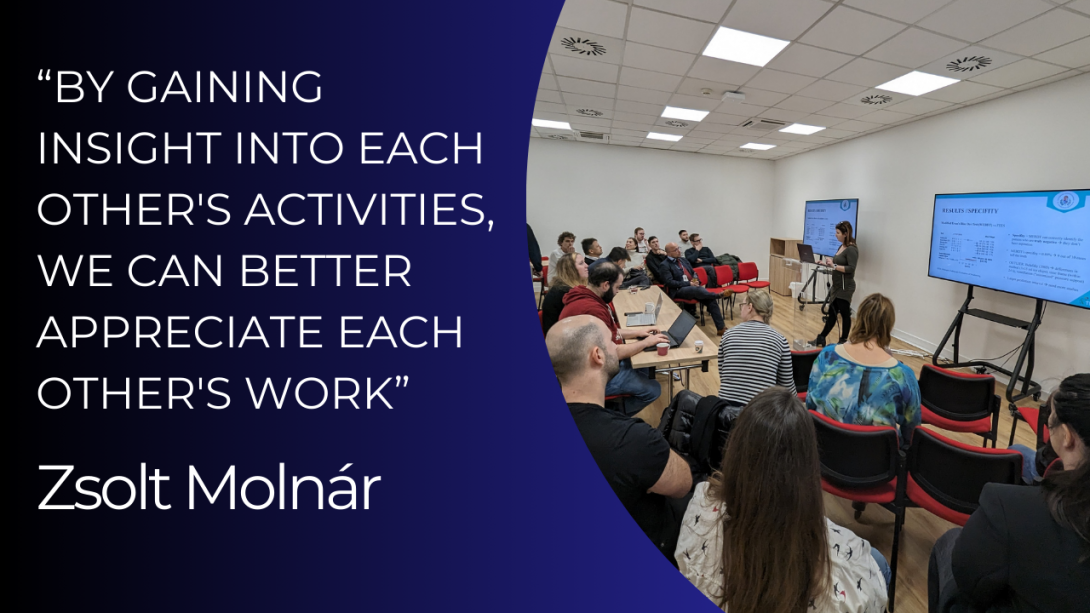
The name says, it's a cardiology and intensive care group, but in reality, it's a very diverse team, with pulmonologists, radiologists, and even a speech therapist. Their research topics are also varied, with publications already in the pipeline. In December, the Cardiology-Intensive Group (Year 1) was named the best group of the month.
The Cardiology-Intensive Group (Year 1) of the Centre for Translational Medicine is a team of ten led by Prof. Dr. Zsolt Molnár and Prof. Dr. Gábor Duray. They guide not only intensivists and cardiologists but also many other health professionals. “We have pulmonologists, radiologists, and even a speech therapist in our group. The speech therapist colleague works in the hospital of Kiskunhalas and applied for CTM's PhD program through the mentor network. With her, we are investigating the aspiration of tracheostomized patients,” said Prof. Dr. Zsolt Molnár.
Personalization of antibiotic therapy is also an important issue, one of the group members is writing a Ph.D. on this topic. The research results of this study will be published soon. Fluid therapy is also a highlighted area, one of the group members examines its application in patients undergoing major surgery or with severe conditions. “The challenge here is determining which infusion solution is the most beneficial for routine use. We also have studies related to blood coagulation, which is a three-year work in progress. We primarily examine blood clotting disorders in septic patients.”
The cardiology topics are also very interesting. One of the team members is exploring the relationship between cardiovascular diseases and inflammation, which is a fascinating issue. One of the radiological topics focuses on the significant radiation exposure during coronary interventions in the operating theatre. The result of this research indicates that protection is not only needed for the physician who performs the intervention, but also for the assisting staff. “Another student compares the effectiveness of different lung biopsies, while another investigates which method is best for embolizing a tumor in the liver. Our pulmonologists are also very active. One of them is studying the relationship between lung fibrosis, inflammation, and antibiotic treatment, while another deals with sleep apnoea, which is also an important problem, affecting many people,” said Prof. Dr. Zsolt Molnár.
In addition to the two group leaders, the team is supported by senior supervisors. Their work is crucial, as they are the ones delving into the details. The group members also help and support each other. “This is essential because most research involves interdisciplinary areas, requiring knowledge in intensive care, cardiology, pulmonology, and radiology. No one can work alone. By gaining insight into each other's activities, we can better appreciate each other's work. Both leaders and students benefit from this collaboration.”
(Emese Szabó)